2025 RSA Annual Conference Partners and Supporters
The 2025 RSA Annual Conference is supported by a number of organisations and partners which are listed below:
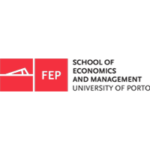
FEP is the school within the University of Porto responsible for education and research in the areas of Economics and Management. It’s mission is to train current and future generations of economists and managers, developing, transmitting and adding social value to knowledge in economics and management, thus contributing towards the construction of a stronger economy and a better society. In its history of more than 60 years it has trained many of the best and most renowned Portuguese economists and managers.

#RSA25 is kindly hosted by the City of Porto.
The City of Porto has generously offered to sponsor the Welcome Reception taking place Tuesday 6th May.
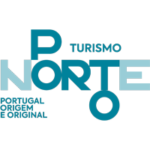
The Porto and North Tourism Association, AR – Porto Convention & Visitors Bureau is a non-profit organization founded in 1995 by a group of institutions interested in the development of tourism in Porto and the North of Portugal. The Association aims to develop and promote Porto and the North of Portugal as a tourist destination, making a decisive contribution to its image of prestige and notoriety in various international markets.
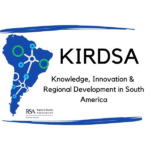
This research network aims to promote research on regional development in South America, focused on knowledge flows and innovation capabilities. Knowledge capabilities are unevenly distributed within national and subnational territories in South America, a region characterized by a peripheral but significant role in the global production of knowledge. These countries have a rich background of research in this field, associated with urban development, production agglomerations, emigration fluxes, and the role of universities, among others. It is highly relevant to articulate research activities aiming to advance our understanding of the regional development processes which promote knowledge creation and improve access to global knowledge flows. This network aims to contribute to facing these challenges by producing relevant evidence and discussing it with policymakers.
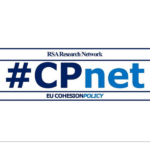
The Regional Studies Association (RSA) Research Network on EU Cohesion Policy (CPnet) aims to provide a forum for debating EU cohesion policy, its effectiveness, impacts, paradoxes and its future. This network has been active since 2011 within the RSA and has successfully organised ten workshops and special sessions at many previous RSA conferences (Izmir 2014, Piacenza 2015, Graz 2016, Dublin 2017 and Lugano 2018). The CPnet research network has succeeded in animating the policy debate with two policy-oriented workshops in Brussels discussing research-based papers with high level EU policy-makers (MEPs, Commissioner’s cabinet, EU Commission staff, Committee of the Regions and other high-level EU policymakers) as well as contributing to the academic debate with three edited volumes and one special issue on Regional Studies based on the outcomes of the RSA-funded workshops
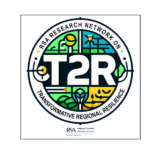
The Regional Studies Association Research Network on Transformative Regional Resilience (T2R) Regions at the age of polycrisis are faced with the dual challenge of being resilient whilst transforming. Our Research Network on Transformative Regional Resilience (T2R) will be at the forefront of developing and disseminating research on resilience and regional transformations.
- Economic shocks and structural changes have become increasingly common, making it essential to understand their lasting impacts on regions.
- The traditional focus on short-term resilience analysis may not adequately address the long-term challenges regions face.
- The need to adapt and diversify regional economies for sustainability and resilience is a pressing concern in the face of evolving global dynamics.
- Economic shocks and structural changes affect regions differently, with urban and rural areas, as well as the Global North and the Global South, facing distinct challenges. Understanding these spatial variations is crucial for tailoring effective policies and strategies to diverse geographical contexts.
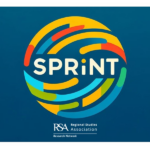
This network focuses on the smart specialisation strategy (S3) approach as an evolving method of designing place-based innovation policy. We build on three years of cooperation through the Marie Skłodowska-Curie Policies for Smart Specialisation research network, as early career scholars with considerable research experience in the investigation of the implementation of S3 policies. The objective of this RSA network is to build upon and expand our prior work; seeking to reorientate academic interest toward the future of S3, considering recent shifts in European policy towards the New Innovation Agenda, Partnerships for Regional Innovation (PRI) and moves towards Open Discovery Processes. We focus on the transition from S3 to sustainable S3 (‘S4’); considering how the new approach aligns with other territorial policies which aim to:
- Drive sustainable economic development through ‘green’ innovation
- Tackle regional inequality
- Foster regional resilience
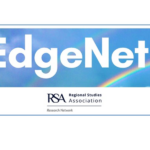
EdgeNet is the Regional Studies Association research network on peripheral places and regions (and why they matter). We advocate and amplify impactful research on, from, and for the diverse places and regions that are ‘non-core’ or on the ‘edge’ of core activities, including but not limited to: rural, peri-urban, post-industrial, de-populating, and remote areas.
EdgeNet seeks to understand peripheries as multi-dimensional and multi-scalar, in space and over time. Neither peripheries nor the many terms research and policy use to describe them (e.g., ‘marginal’, ‘remote’, ‘less-developed’) are homogenous. Not all peripheries are ‘left-behind’. Some core-periphery relationships are writ large in colonial histories and global economic flows. Some peripheral regions divide into cores and peripheries at local scales. Some cores have changed to peripheries (and some back again) over time.